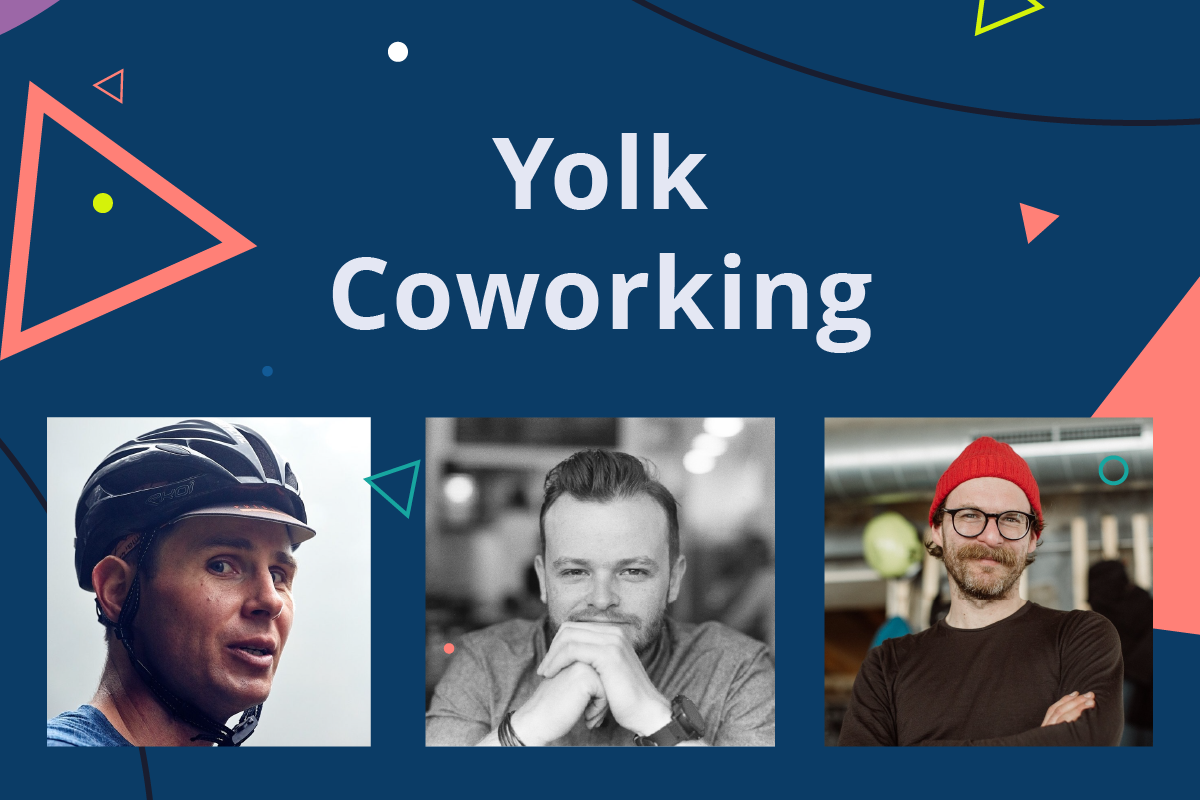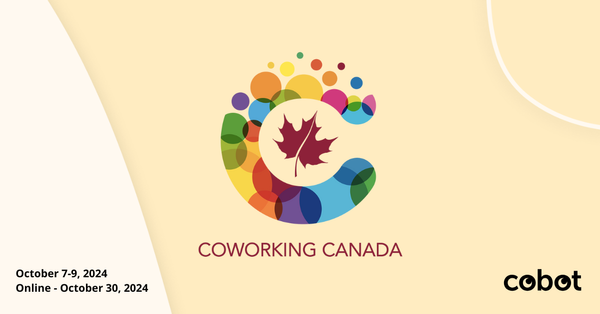We’re going on a tour of Cobot users and spaces around the world and asking them about their current situation, advice they have to share, and what they’re doing to lay the foundation for their next steps! Today’s stop: Yolk Coworking in Kraków, Poland.
Can you tell me a bit about yourself and Yolk Coworking?
Max: I’m the founder; Piotr is the guy who makes my ideas happen; he’s the do-er; Michal is the guy who gets in the way [laughter]. At the turn of the year, we started working on the space, and we finally opened in February.
Then, out of lockdown, it bounced back within about four weeks.
Max: We had a smashing month and a half, and then we had to — well, we didn’t actually have to close anything down, but a lot of people disappeared. It kind of un-froze around April, we came out of lockdown and we were in a good position because we hadn’t accrued lots of random costs; the landlord was pretty good about coming up with reduced rent. Then, out of lockdown, it bounced back within about four weeks. And gradually, from April until last month, it’s been growing consistently, and now we’re full and not taking any additional members.
This has also pushed us to start work on a second space. [Vacancies] are opening up in this building so we took a second space about a month ago, we’re currently in there getting that going, and we’ve just taken a third space, we’re actually sitting here right now. The third space is our bigger vision of what we see Yolk as, it’s going to be of like a clubhouse or members lounge, with a coworking cafe-type setup.
I’ve heard of spaces doing well despite the pandemic, but not so many are expanding. What led you to make that decision?
Max: I think we noticed that straight after lockdown there was an appetite for social interaction, and all of a sudden, everyone came back. We were doing events, such as outdoor events in the courtyard, a film screening night, and some breakfast events to try and bring people together. One of the things that was clear when I started was that there was not really a clear idea of who the target was, like who the persona for the space was. I had some vague idea that it was a creative space, but I think that it was a bit wide of a mark.
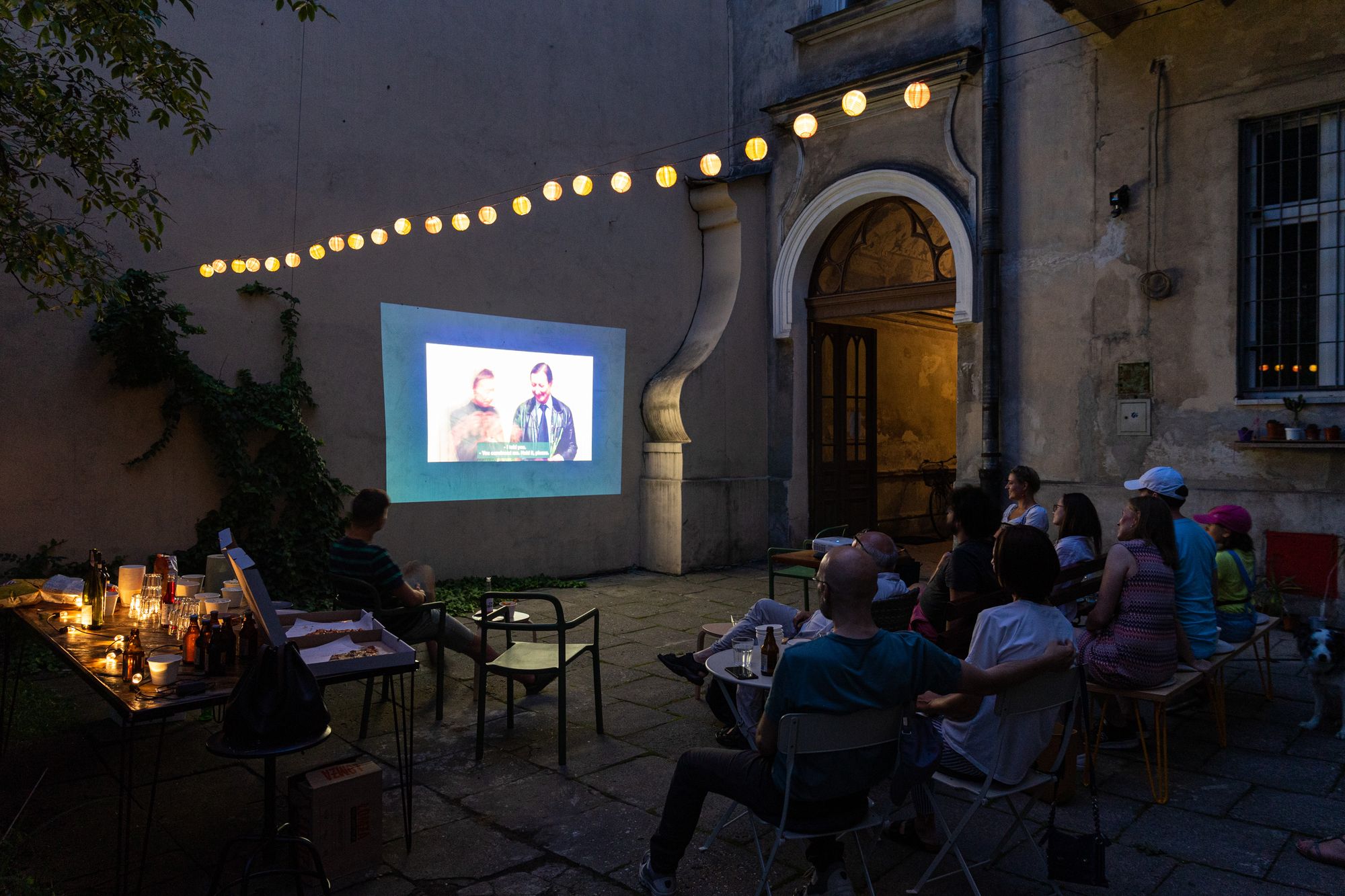
What we noticed within four weeks was that the people we were attracting were non-Polish, they were expats, they were international. Mostly because I’m English, and all our communication on the website was in English; our Facebook was in English, which immediately drew the expat crowd. That, in turn, shaped how we approached it. It stopped being “coworking-desk-wifi,” and it became more about people making connections. What we found was that you’d have expats who don’t have school friends or college friends in a city, and they’re looking for that community and their people. We realized that that’s what we’re facilitating. This is also what led to [our third space] because this space is going to be more like a community hub, a place where people interact. Which also then answers your question.
I think after lockdown people wanted that social interaction so they were quite ready to come back.
A lot of what you mentioned were outdoor events or capable of being run outdoors. Are you prepping anything in particular for the winter months when that becomes more difficult?
Michal: I think we’re going to need to get more creative because, obviously, we can’t expect people to be outside in the courtyard for two hours on a cold night. I was thinking of doing something where we’re in the city, moving around, walking around, like some type of scavenger hunt. Something where people could maybe get into small groups and socialize, get to know each other, but also, as they’re moving around the city and they’re moving through the space, I feel that it’s also a metaphor for their relationships.
Their relationships are also growing and evolving. Instead of being stuck surrounded by four walls, when you’re moving through a city where there’s just a multitude of things to point out, whether it’s people, buildings, or nature, it just gives you more to talk about and gives you stories and that’s how people get to know one another when they share those stories and experiences.
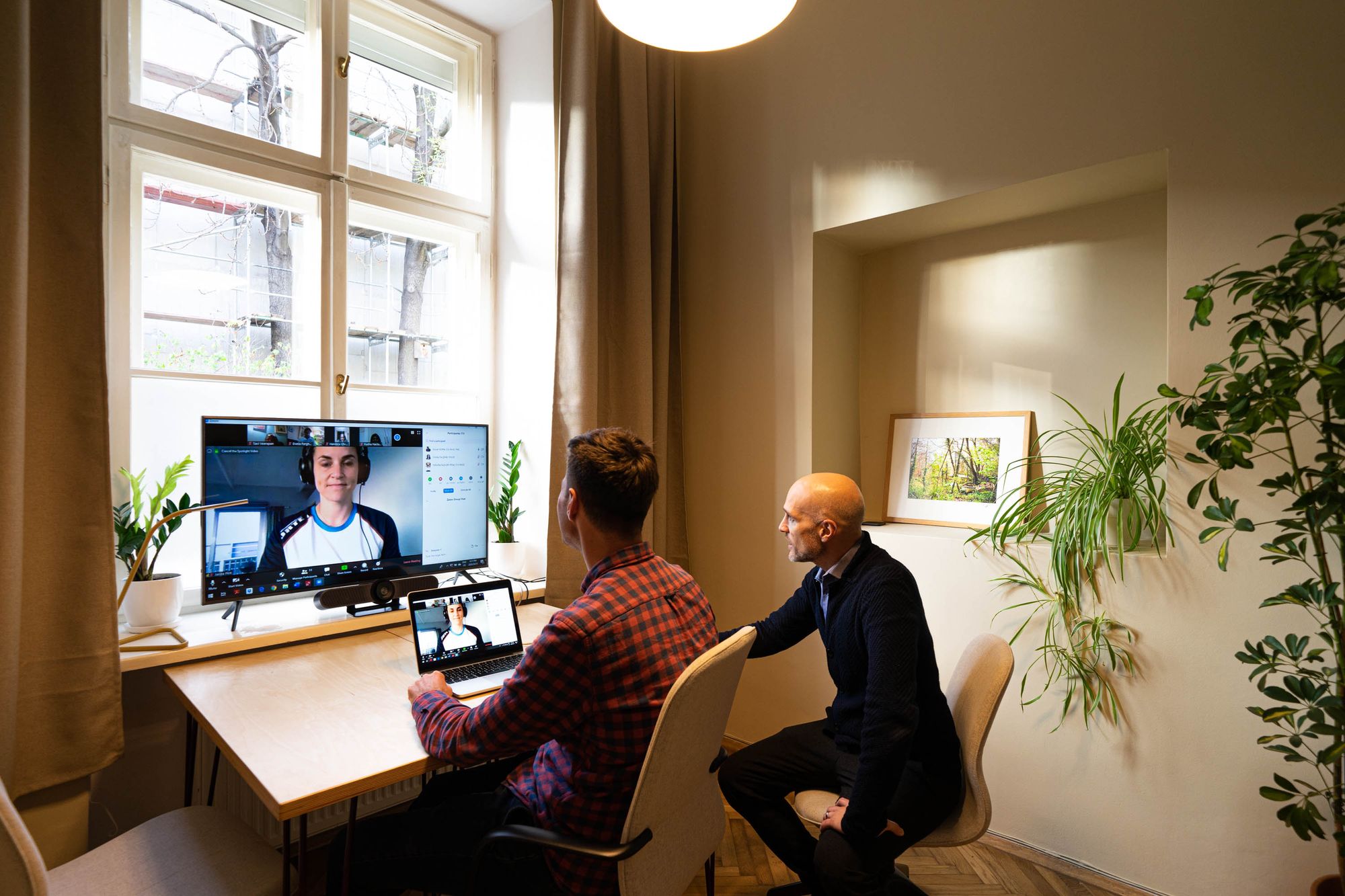
I think they did a good job of getting a hold of it and locking it
At the beginning of the year, I think they did a good job of getting a hold of it and locking it down early. I think that’s why the numbers were so good early on. I think that’s also why we’ve been through most of this year, where people don’t really think it’s an issue. I mean literally in the height of summer, being in Kraków was like nothing had happened, there was no difference. And I think the politics of it are is that there was a presidential election that they wanted to make sure happened. Now that’s done, they’re kind of lackluster in their response. This is why we’re now seeing quite crazy high numbers, and who knows what winter is going to bring.
What led you to find a coworking space in the first place?
About sixteen months ago, I had a baby. At the time, I was running a cycle apparel business. So I do a lot of cycling — we actually all do a lot of cycling, and that’s what brought us all together. I know these guys through cycling. I had a business that produced cycling clothing; we also organized holidays. I worked at home in my little bubble for quite a few years — and I hated it. I was always trying to get an office in town, but at the time, my wife, who was my business partner as well, was against extra expenses. She was like: “You don’t need an office, don’t be stupid.” And then we had a baby, and within a week, I knew I wasn’t going to be able to work from home again. So I went and got an office, it was a bit bigger than I needed so I ended up renting some spaces out to some people that I knew. One of them, he’s been to every coworking space in Kraków, and he kept saying to me: “I think you should do this properly.”
It had been something I’d thought about previously because I used to study architecture and I like the idea of creating spaces for people. I guess ultimately when I wanted that office for my last business it was more that I wanted a creative space rather than that I wanted to have a bunch of people to manage. Coworking is great because I get to create a space and not have to manage the people who work there.
Anyway he said to me: “you need to do this,” and I think the same afternoon I had that conversation I went onto a real estate search website and saw this space not far from the first office. I looked at it, and I knew straight away that I needed to do something. It all happened so quickly, and I ended up closing the first office because we just moved everything here. There are a lot of coworking spaces in Kraków, and they all seemed to me to be very much kind of what my first office was; someone said I need office space, I’ll take a bigger office, and then I’ll rent some desks out. So rather than it being kind of a clear idea of who they’re targeting, what they’re offering is sort of an ancillary service.
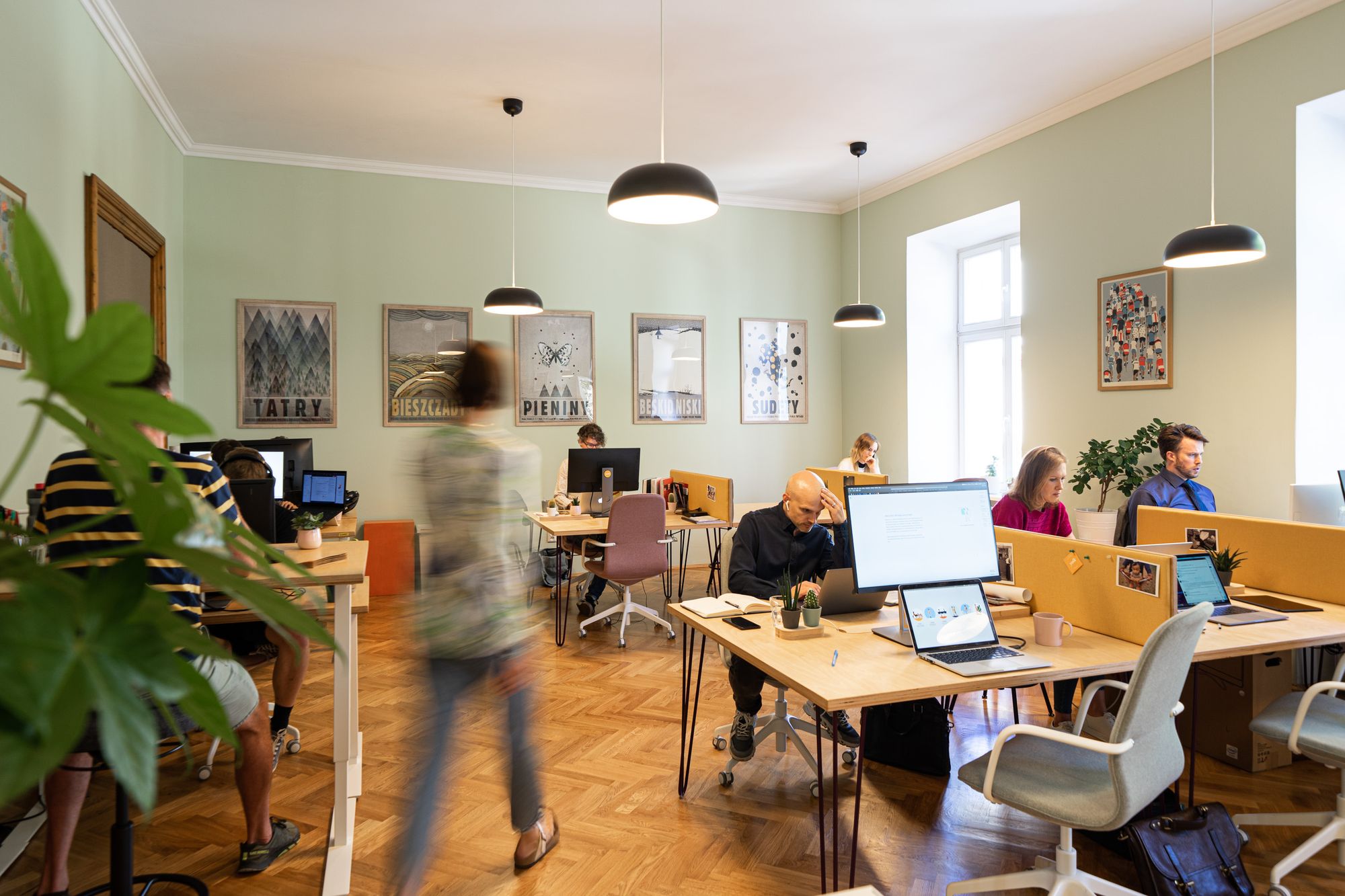
,
Michal: I don’t have much experience with coworking in other cities. Honestly, in the past, when I’d heard the word coworking, it seemed suspicious. I’m glad this is my real first experience.
Max: I’ve been to a few [spaces] around Kraków. I guess that’s quite interesting. We’re approaching this, and we haven’t done anything like it before.
Within us all, us three, we have this designer side, we’re open to listening to our environment picking up on things, and evolving our design instead of being steadfast and following our first idea.
That’s one of the big things that came out of the lockdown as well. The first thing we did when we went into lockdown, and everyone was sitting at home, was that we talked about how to grow a community and how to build an online community.
Michal: I wouldn’t even say that, we weren’t really concerned about community, we were just like, how do we get more members? And I think that’s how we thought about things in the beginning, about just individual members. And that translates into how we get butts into seats, and therefore, these butts are paying bills. And I think we just sort of saw our space as sort of a parking lot — the members were just cars and we just wanted to fill those spaces. But we really never thought about like the whole ecosystem at the beginning.
It wasn’t until COVID, and once we started building relationships and friendships with our members, then we started seeing some of the magic that’s happening between them and just how much value they’re creating between themselves for the space.
That totally shifted how we see the business.
Max: Yeah, it’s hard because every coworking space on their website will say hey, we’ve got a great community. And it’s easy for us to say we’ve got a great community — but I actually genuinely believe that we’ve got a great one. And it’s down to the fact that we have this kind of niche of having these expats looking for friends more than looking for a place to work. We literally had someone come in and say “I’m looking for my people” Other people come into the space and see that and say: “yeah, that’s where I want to be.”
Michal: No matter how much money you have, you can’t just build that out. It takes time to nurture and protect it, and it takes us to show them that they mean a lot to us. That just takes time. It’s sort of like kindling, once you get the fire lit all you need to do it protect it and nurture it and it’s just going to grow.
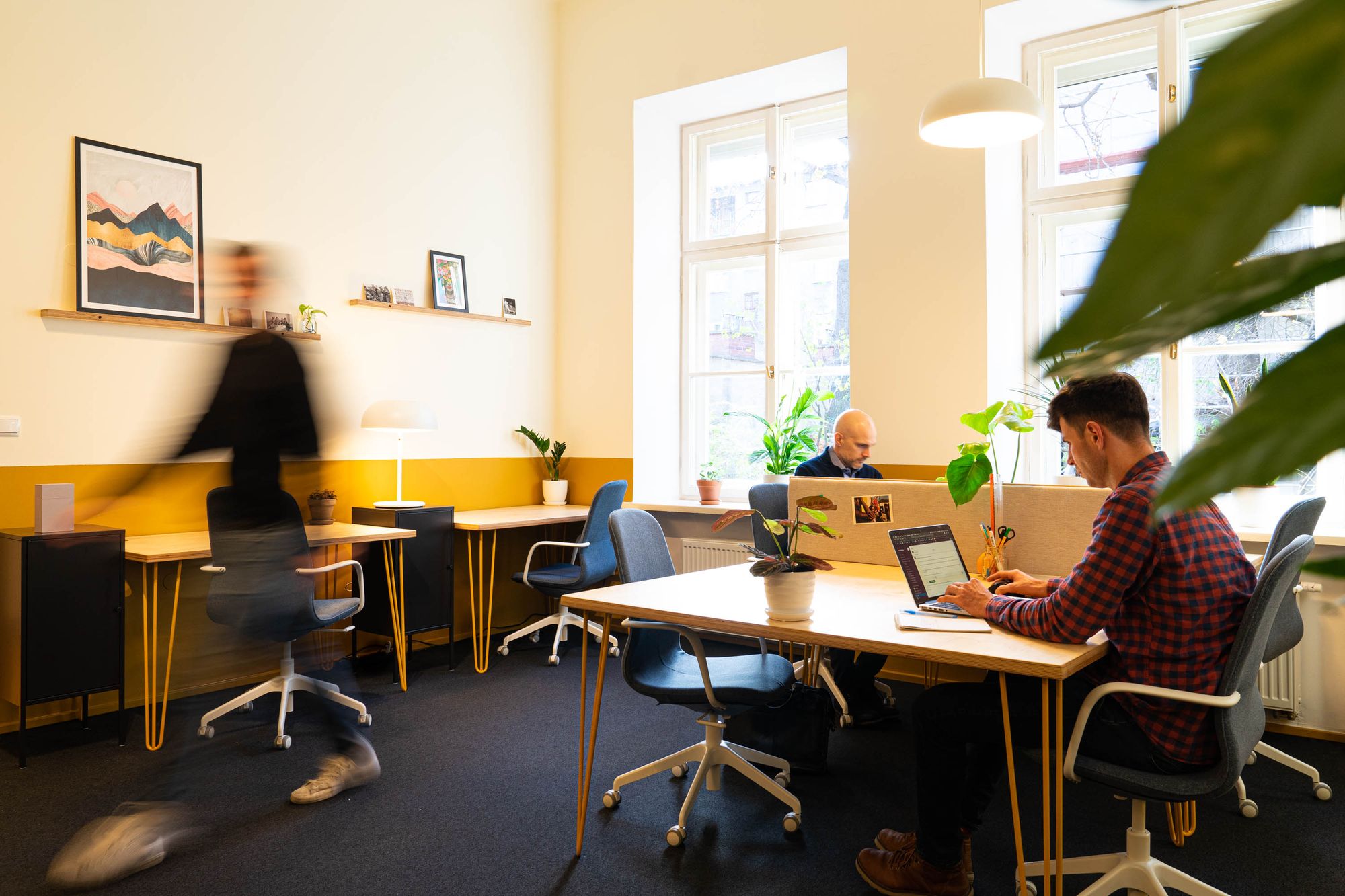
Anything else you’d like to share?
Michal: Community over the facility. That’s a big thing for us. It’s about listening — it’s very much a relationship between us, the designers and builders, and the members. It’s about listening to them. And even for the space in we’re in right now, we have ideas about how it might be used and how it might look, but I think we’re all very much open to the fact that that might change over time or it just might not be as we see it now — and we’re open to that evolution.
If you aren’t already using Cobot as your coworking management software, give it a go! You’ll find that our features can help you run your coworking space more effectively and grow your community. Just sign up for a free trial or a live demo session. And if you have questions, our support team is all ears!
Happy Coworking!
